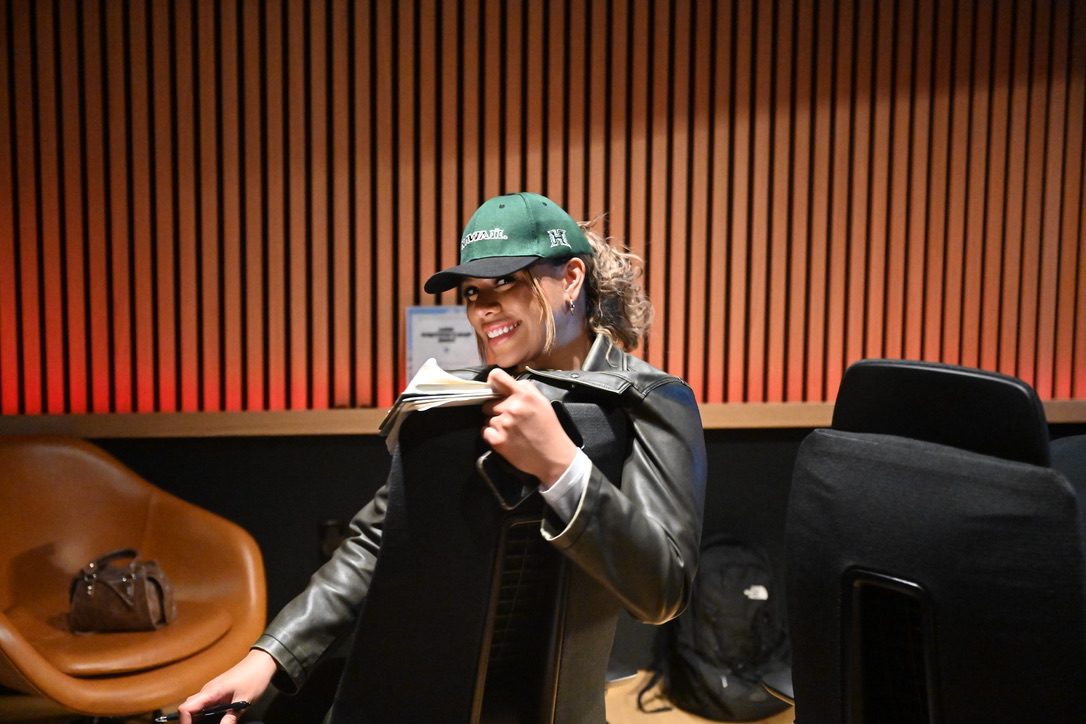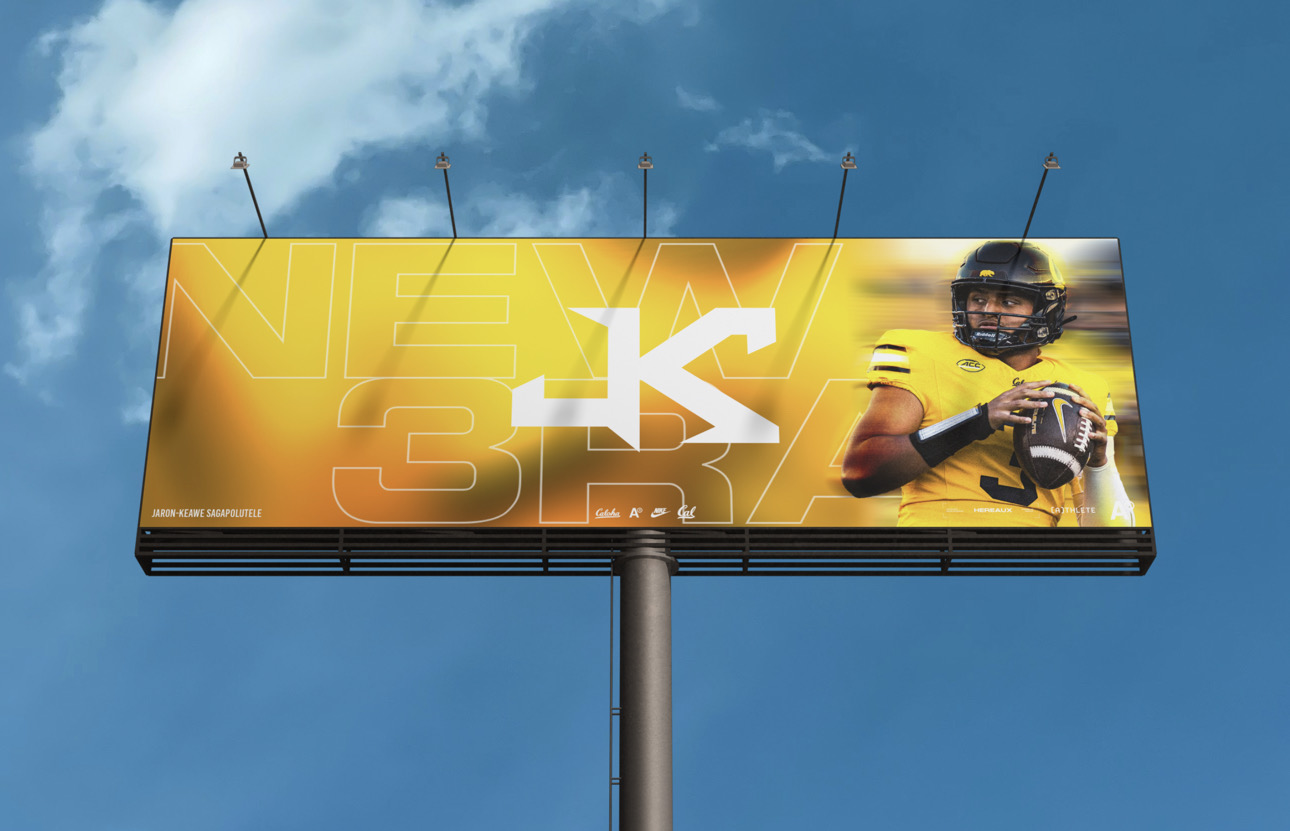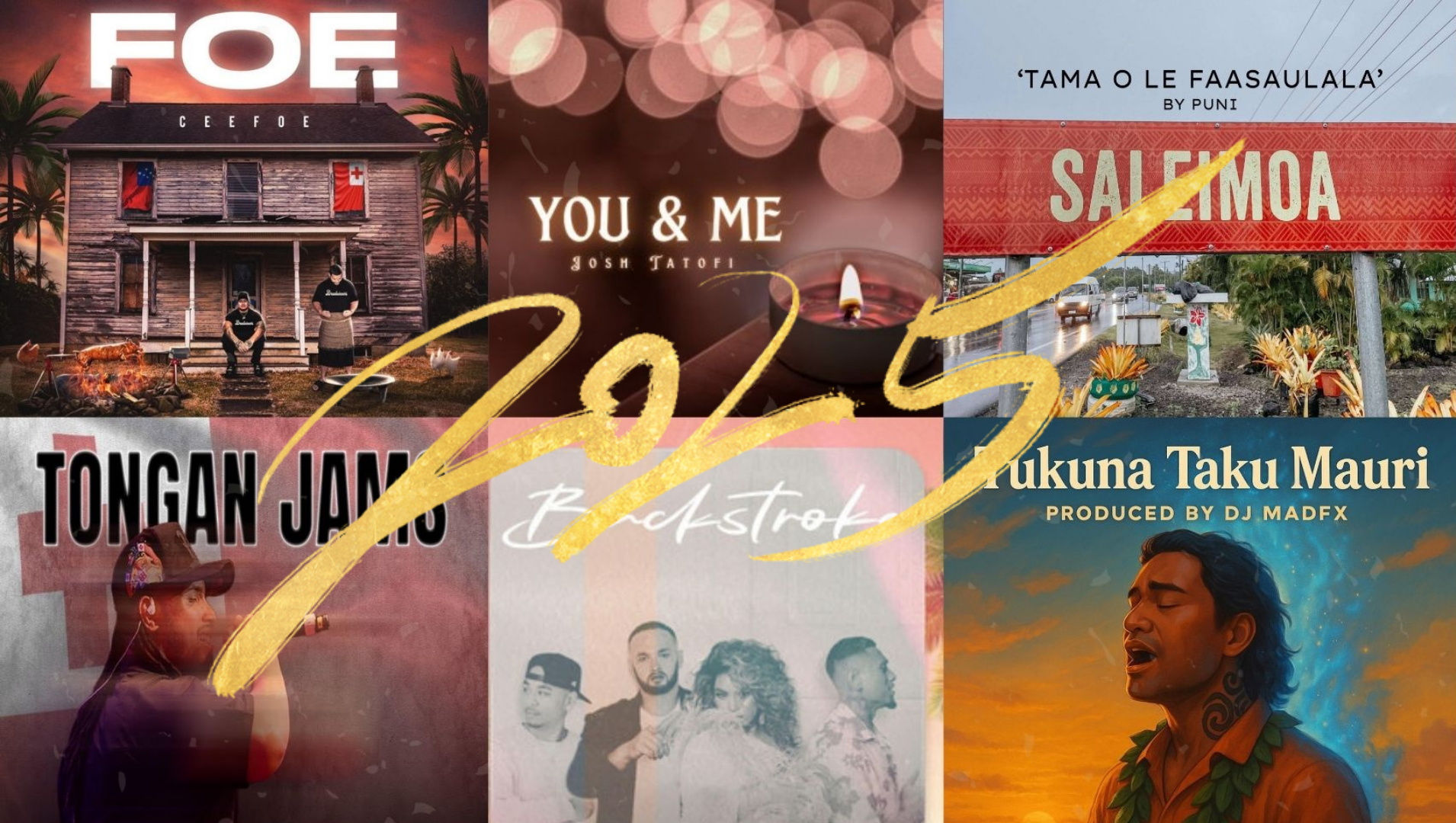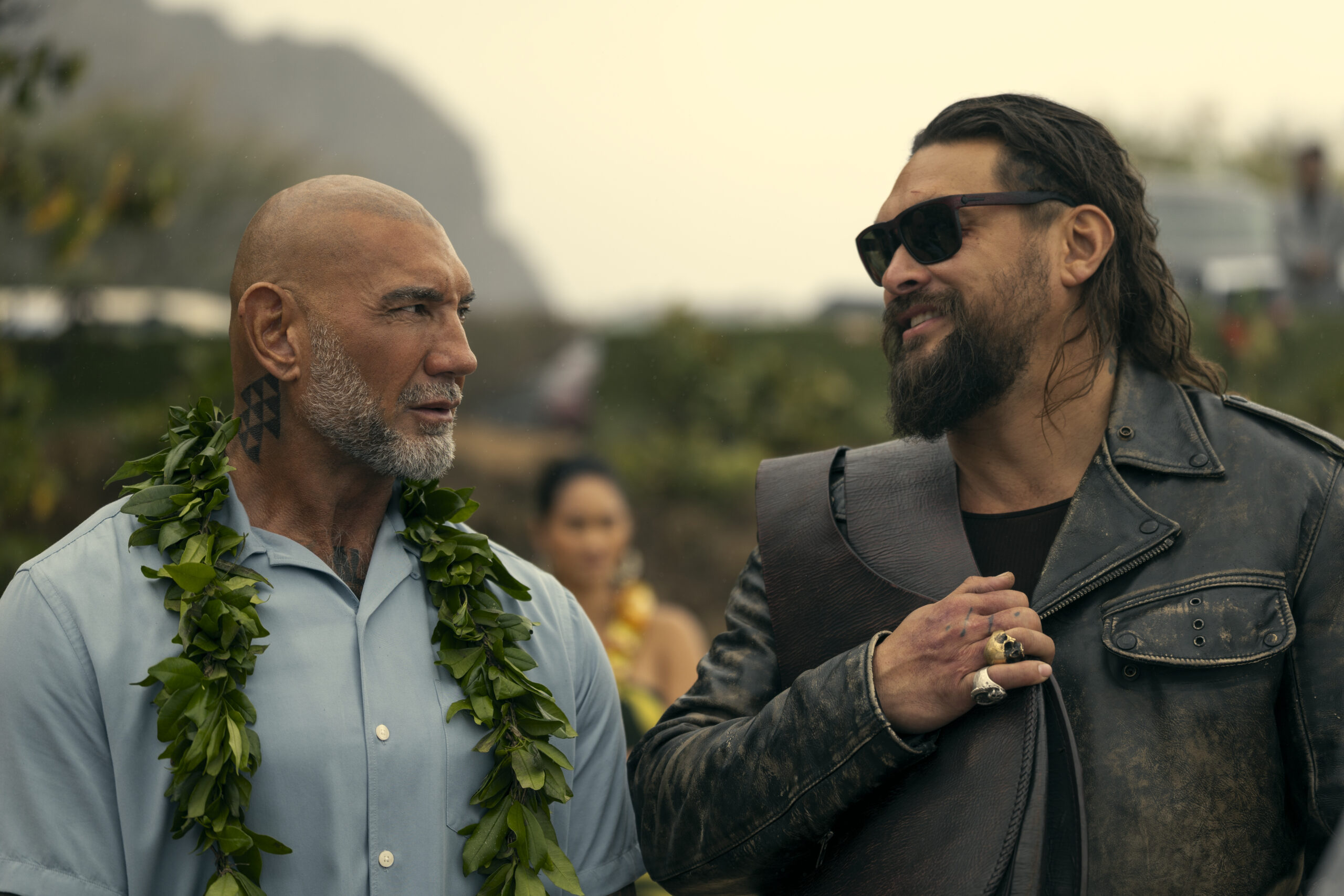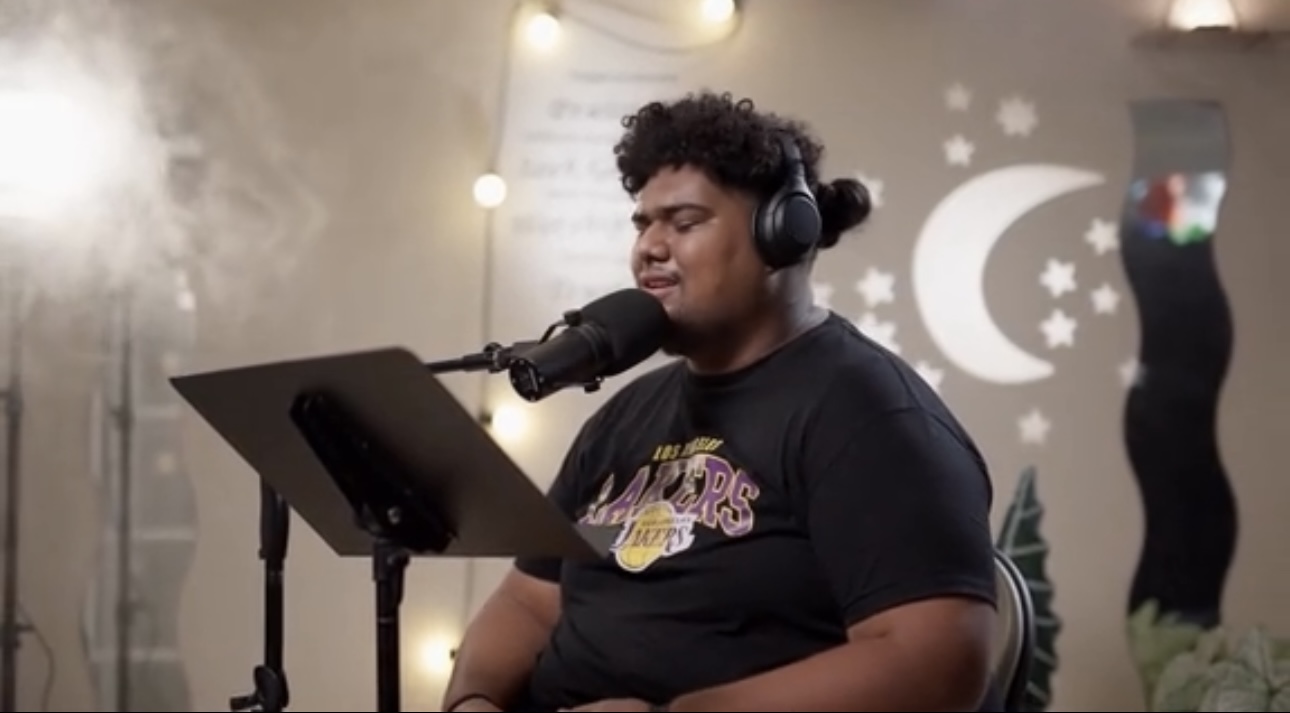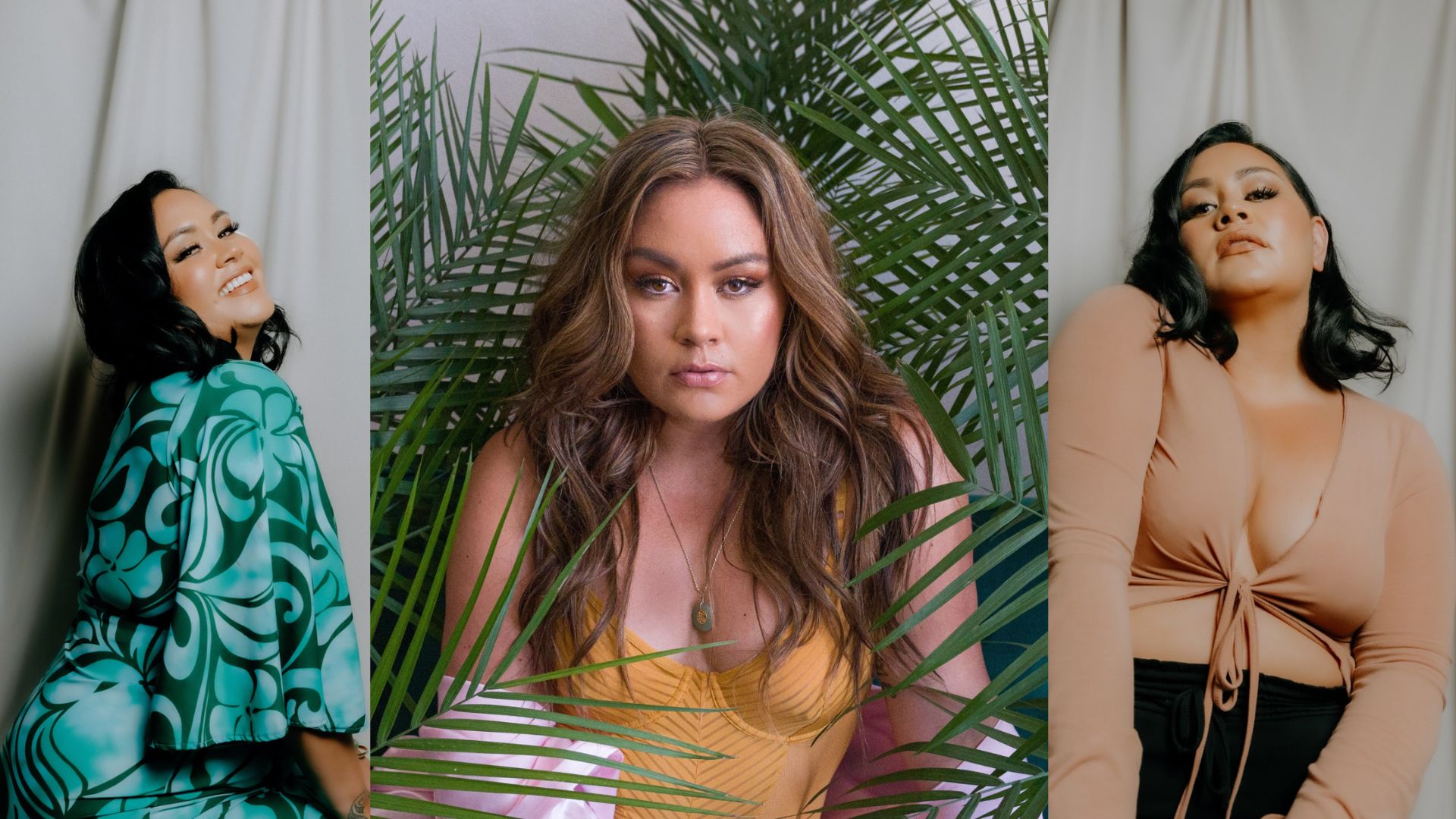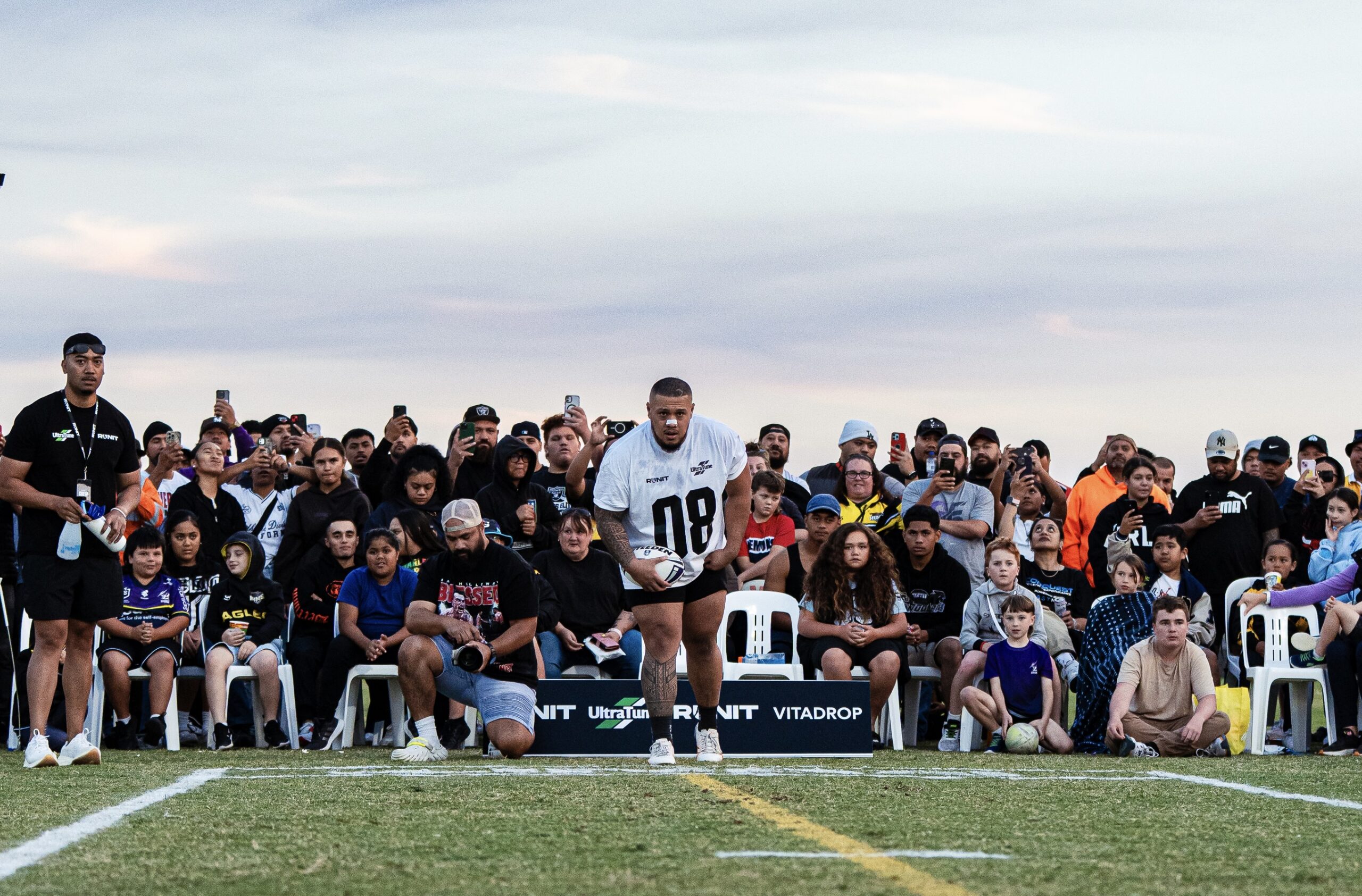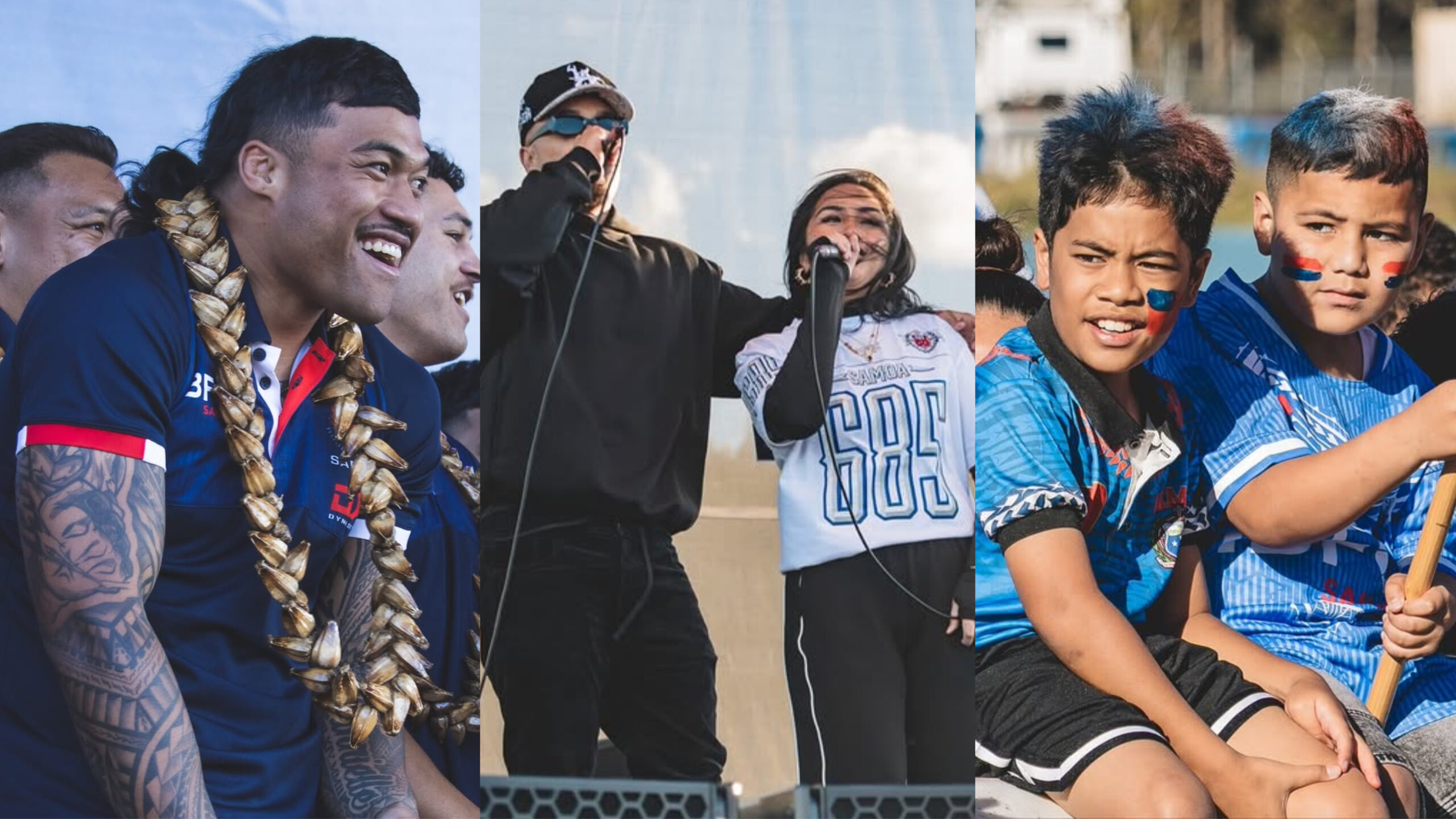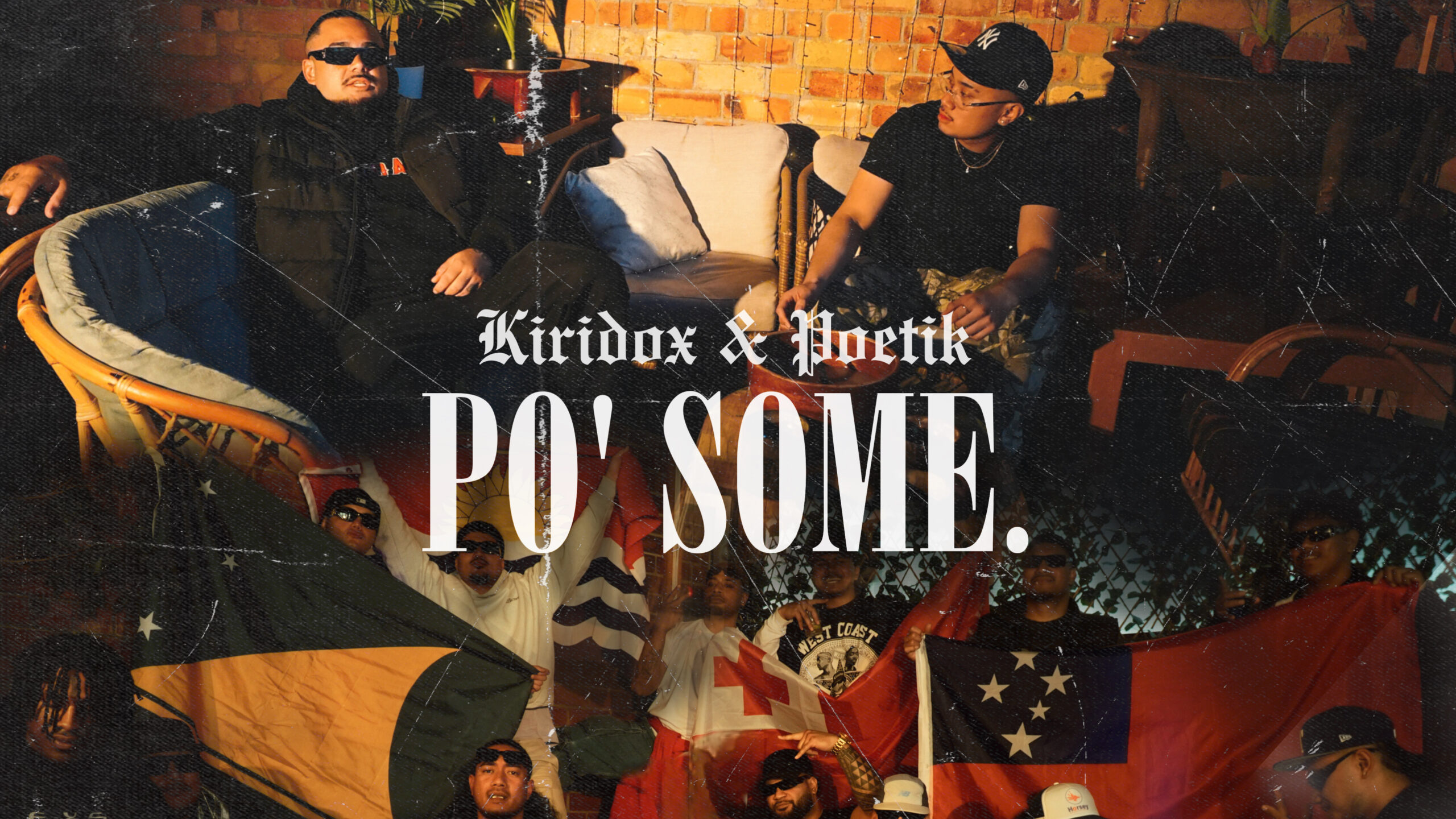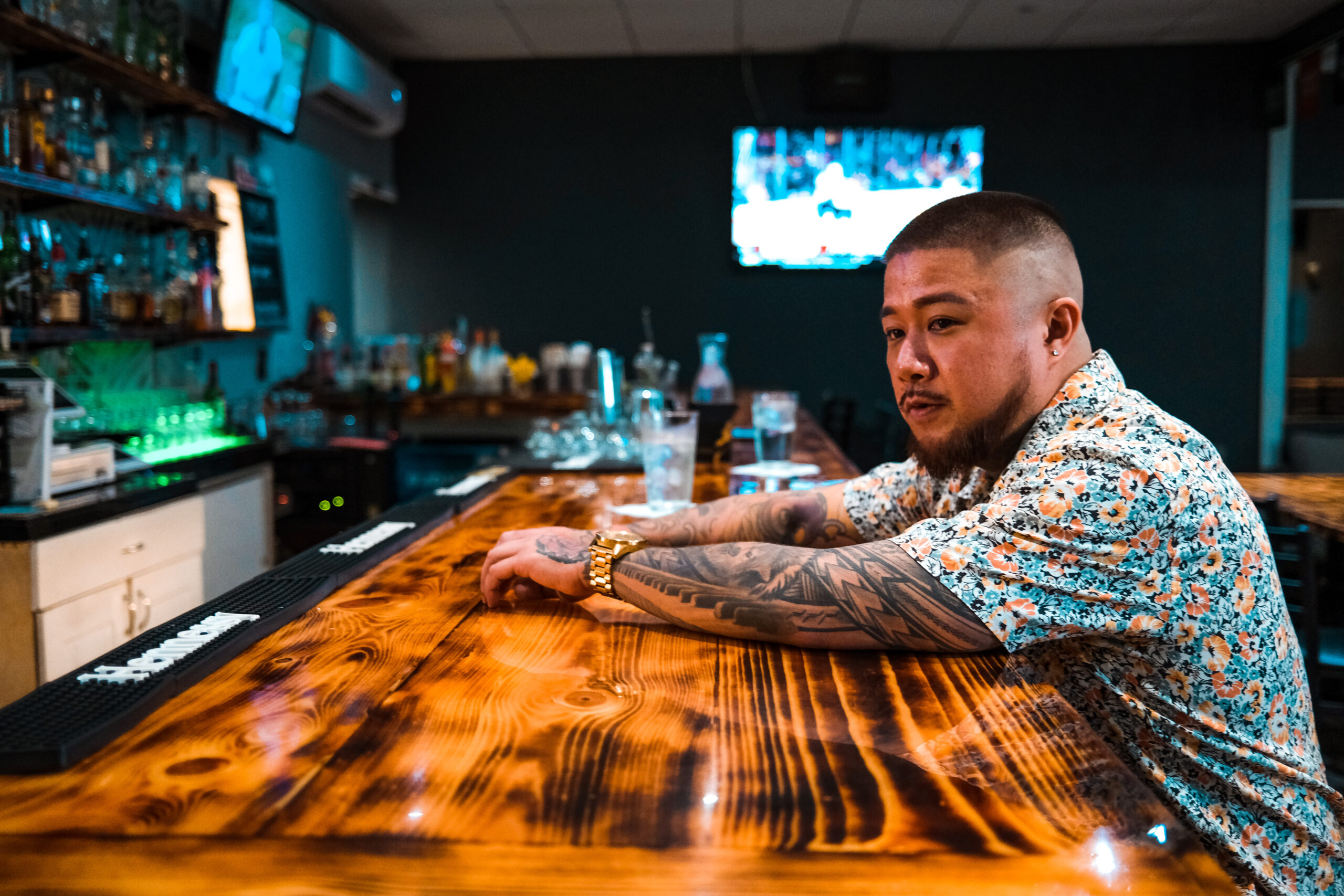In mid-May, in the heart of Los Angeles, something powerful unfolded behind studio doors, something that went far beyond beats, melodies, or even the music itself.
Mono Stereo Groove, an emerging yet powerful collective of Asian creators and executives in the music industry, hosted a songwriting camp in celebration of AANHPI Month. The camp wasn’t just an event; it was a movement. Among the lineup were beloved names like Dinah Jane, Common Kings, Sammy Johnson, Jay Taj, and Tiana Nonosina Liufau, talented artists whose roots run deep in Pacific soil and whose voices carry ancestral echoes into the modern world.
But before diving into their stories, let’s talk about Mono Stereo Groove, MSG.
Founded in early 2022 by platinum-selling singer-songwriter Rosemarie Tan and powerhouse manager/music executive Maria T. Lyons, Mono Stereo Groove was born out of necessity. The music industry lacked spaces where Asian talent could thrive without compromise, where their identities were not footnotes but focal points. So they created one.
MSG is a community of hitmakers and playmakers representing the Asian diaspora. From recording artists to producers, songwriters to executives, this group is unified by one purpose: to amplify and elevate Asian voices in music. In a short time, MSG has partnered with giants like Sony Music Group, Warner Music Group, Spotify, Apple Music, The Recording Academy, and more curating songwriting camps, panels, and events that are rewriting what inclusion looks like.
The Pasifika Push: How Representation Was Built Into the Room
This year’s camp marked the fourth year of this songwriting initiative, but the journey toward Pacific Islander representation didn’t begin at the start. In fact, the very first year of the camp had zero Pasifika presence. Not a single voice, not a single name, not a single story from our communities was in the room. That absence was felt.
By year two, the team at Mono Stereo Groove knew something had to change. That’s when they made a pivotal move: reaching out to Chad Vaifanua, music A&R, strategic music partner, and now a respected MSG board member. They didn’t just invite him in for the moment, they brought him in with intention. His role wasn’t symbolic. It was structural.
For the past three years, Chad has made it his mission to bridge that gap and bring more Pasifika talent into these creative spaces. As the dedicated representative for the Pacific community on the MSG board, Chad has worked tirelessly behind the scenes, identifying artists, amplifying voices, and advocating for inclusion, not just during AANHPI Month, but always. It’s because of that ongoing effort that we now see familiar names we cherish, hear sounds that feel like home, and witness stories that mirror our own being created, honored, and celebrated.
This isn’t just about music. It’s about reclaiming our place in spaces we’ve always belonged but have rarely been welcomed into. Chad’s work has helped change that and it’s only the beginning.
This 2025 AANHPI Songwriting Camp was no exception.
Our Pasifika artists showed up fully grounded in who they are, unapologetically themselves, deeply rooted in their craft. They stepped into those rooms not as guests, but as they belonged… because they do. Watching them in motion felt like witnessing lightning captured mid-strike: raw, rare, and real. It was collaboration in its purest form. Community at its most alive.
We had the privilege of being welcomed into that space, not just to observe, but to witness, document, and honor the beauty of what unfolded. We stepped into their world and watched creativity take flight. In separate studios, our artists teamed up with producers and fellow musicians. Once inside, it was all focus, heads down, pens moving, melodies humming, energy rising. This wasn’t a performance. This was home.
It was breathtaking. These are artists who carry islands in their bones and oceans in their voices. And in that space, they weren’t just seen, they were celebrated. Respected. Heard. It was sacred.
Here’s what they had to say:
DINAH JANE
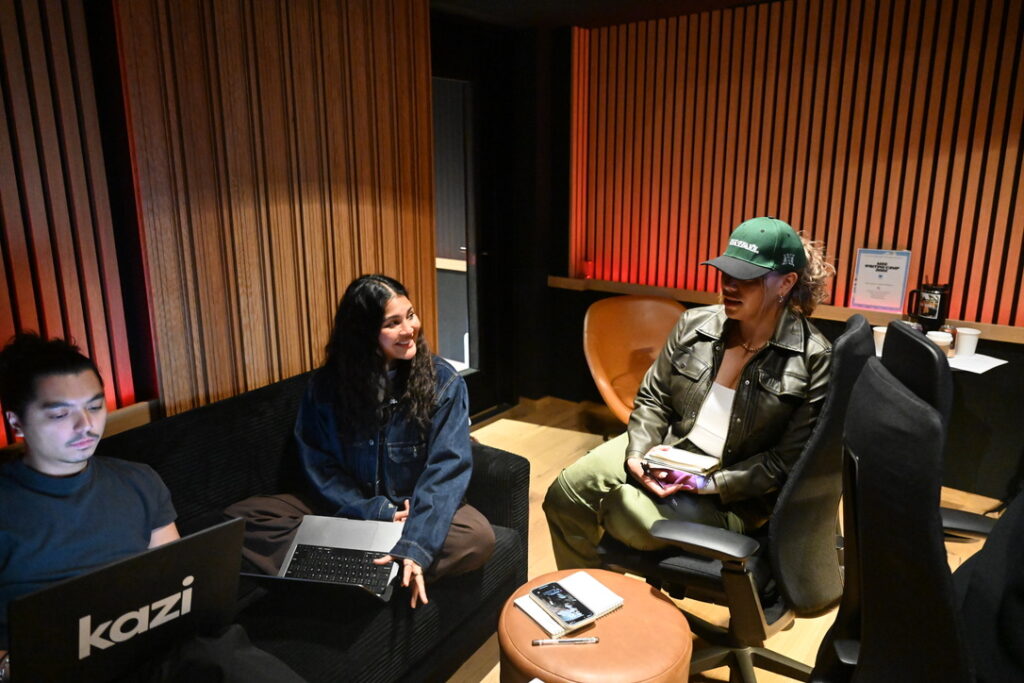
What’s one moment from this camp that made you feel proud to be Pacific Islander?
“I can’t say one moment because it was the entire experience for me. Occupying space, we moved through the building with a sense of ownership. During my early career, I was signed to a Sony label. This time, entering the building walking shoulder to shoulder with my AANHPI brothers and sisters, it felt as though this was the culmination of our ancestors’ aspirations. Why they fought wind and sea to discover a new dream. In a building that often made me feel small I was now standing in my Power.”
SAMMY JOHNSON
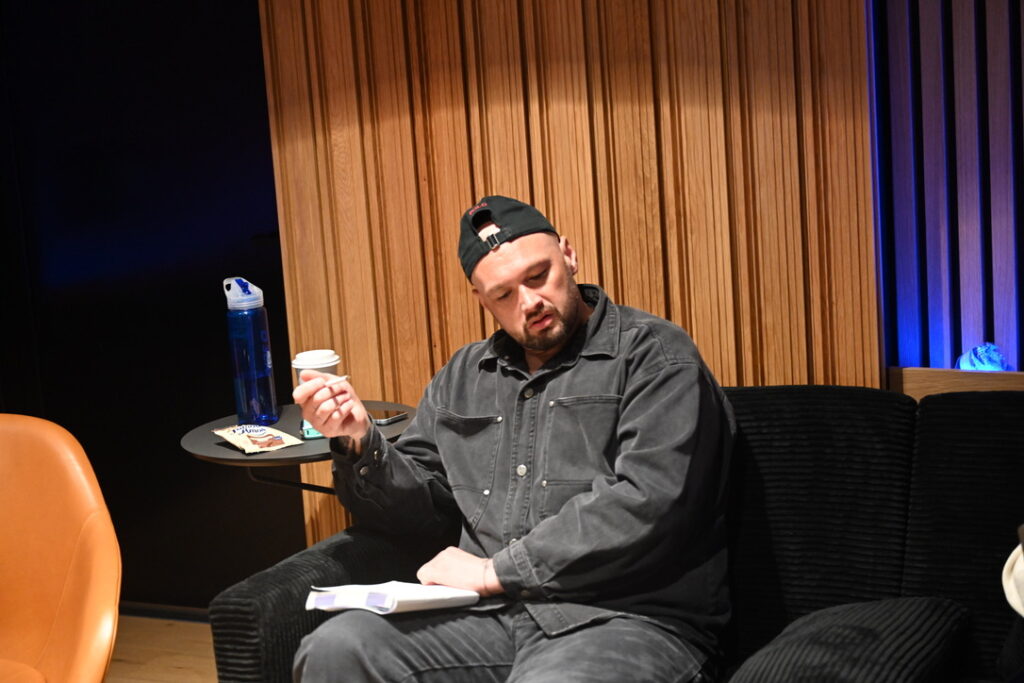
Why is it important for Pacific Islanders to be in rooms like this—creating, collaborating, and being heard?
“I think the fact that these rooms and sessions even exist is a testament to how far we already have come. I remember when I first over here to the United States opportunities like this weren’t available. I think it’s so important for everyone from every perspective has a voice and an opportunity to be heard, it makes us feel seen and celebrated.”
As a Pacific Islander artist, how did it feel to be part of this writing/music camp during AAPI Heritage Month?
“It makes me feel proud! I don’t take opportunities like this lightly especially knowing how hard we have had to fight just to stay afloat in such a hard industry. From the outside looking in I’m sure it appears very glamorous but the truth is it’s very hard and not everyone makes it through unscathed. But knowing that I am not alone on this journey just like our ancestors, we travel this path as a family. It’s such a beautiful reward to now sit at tables together and represent our beautiful culture.”
COMMON KINGS
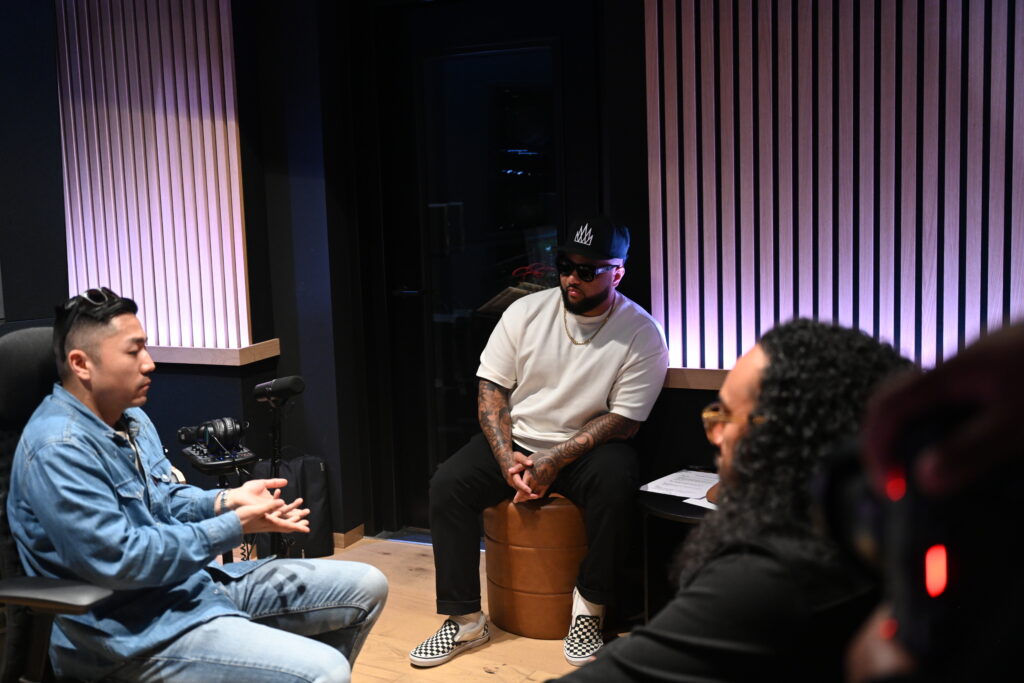
How did this space (AAPI Writing Camp) fuel your growth as both an artist and a Pacific Islander?
“It gave us room to reflect, reconnect, and recharge. Being surrounded by other creatives who share similar roots and stories reminded us that our voices matter—that our cultural lens brings something powerful to the table. It wasn’t just about writing songs, it was about writing from truth, from our lineage, and from our lived experiences.”
Why is it important for Pacific Islanders to be in rooms like this—creating, collaborating, and being heard?
“Because we’ve spent too long on the outside looking in. Being in rooms like this helps shift that narrative. It’s about more than representation—it’s about contribution. We carry stories, rhythms, and perspectives that are rich and deeply rooted. When we create together, we’re not just making music—we’re making space for the next generation to dream even bigger.”
As a Pacific Islander artist, how did it feel to be part of this writing/music camp during AAPI Heritage Month?
“It felt like alignment. To be celebrated, seen, and heard during a month that’s all about honoring our heritage made it even more meaningful. It wasn’t performative—it was purposeful. We got to share our stories in our own way, with people who truly understand the heart behind the harmony.”
What’s one moment from this camp that made you feel proud to be Pacific Islander?
“There was a moment—just laughter, storytelling, and guitars all around—when it hit us: this is exactly what our cultures are about. Connection. Community. Mana. That sense of pride wasn’t from a single lyric or performance, but from being in a room where our identities were celebrated, not explained.”
TIANA NONOSINA LIUFAU
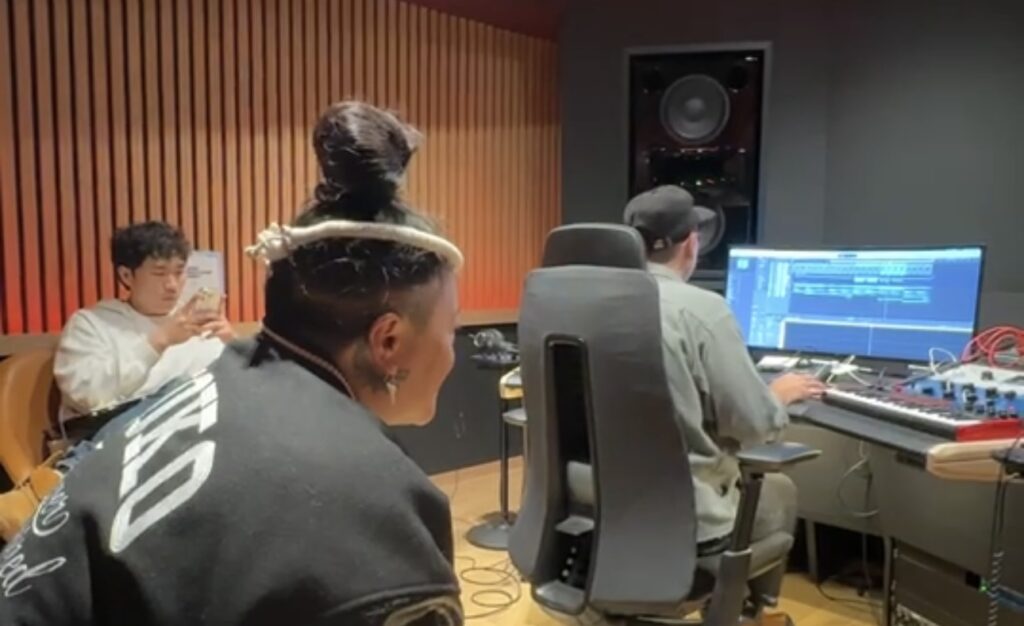
How did this space (AAPI Writing Camp) fuel your growth as both an artist and a Pacific Islander?
“This camp gave me more than tools. It gave me alignment. To create alongside other Pacific Islanders in a space built for us, by us, reminded me that our stories hold weight. Being in the studio with people who understand the layers of your identity without needing explanation is rare. It pushed me to grow, not just technically, but spiritually. This space did not just fuel my artistry. It reconnected me to the purpose behind it.”
Why is it important for Pacific Islanders to be in rooms like this, creating, collaborating, and being heard?
“Because our silence is not our nature. We come from rhythm, from memory, from lineage. When we are not in these rooms, entire dimensions of storytelling are missing. Our presence is not about being seen. It is about making sure our stories are told with truth and care. We owe that to our ancestors, and we owe it to the ones coming next.”
As a Pacific Islander artist, how did it feel to be part of this writing and music camp during AAPI Heritage Month?
“For me, this is not just a month. It is a way of life. AAPI recognition may sit on a calendar, but I carry it every day in my perspective, my culture, and my work. I am a Polynesian artist, and no matter the genre or style, my roots shape the way I move through the world. That said, our creativity is not confined. Like our ancestors, we navigate many worlds. We adapt. We collaborate. And when we leave our imprint while staying true to who we are, that is where the magic lives.”
What is one moment from this camp that made you feel proud to be Pacific Islander?
“There were many, but one that stands out was introducing Polynesian instruments to the producers and explaining the meaning behind each one. We recorded them and labeled them by their cultural names. That may seem small, but in that moment, the studio held more than sound. It held mana. It held intention. That vibration is still echoing, and I know it will not be the last time our sound shapes a space like that.”
JAY TAJ
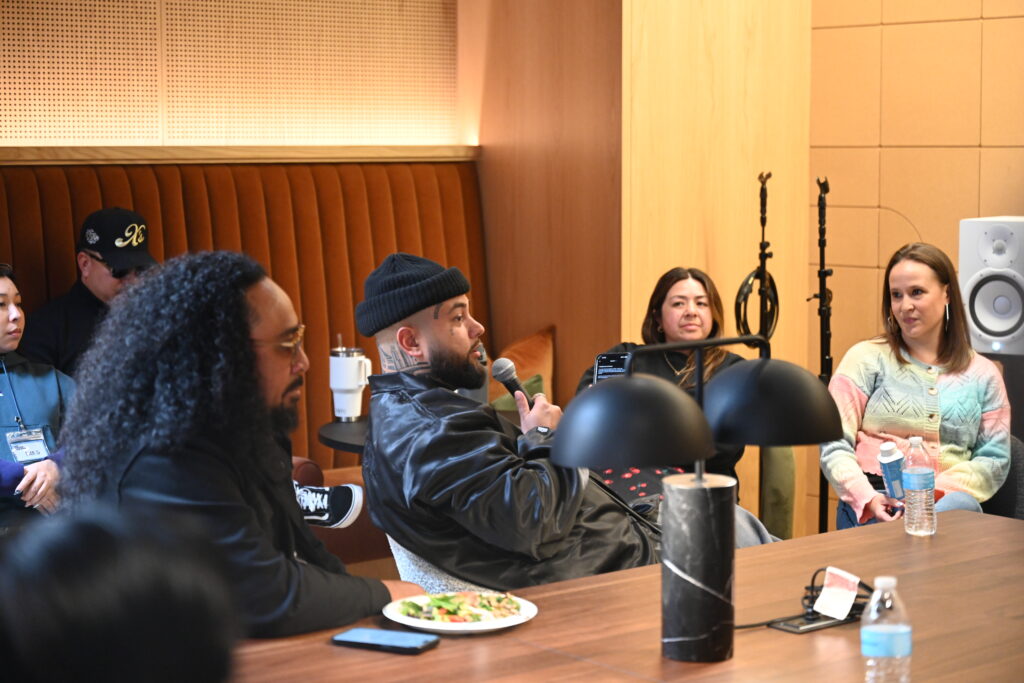
“Rooms like this show that our complexity isn’t a footnote—it’s the story. We’ll never fit into one box, one style, or one month. The range of voices and experiences here is proof that our communities hold multitudes—each worthy of being seen, supported and celebrated.”
To witness these artists bring their full selves into a space that sees them, celebrates them, and creates with them was a reminder of the power of representation. Our Pasifika artists are not new to this, our people have always created, sung, told stories through dance, rhythm, and voice. But now, they are being heard in places that once felt unreachable.
This is why it matters.
We need more Pacific Islander names, faces, and voices in these rooms. Our creativity is rooted in culture, our sounds carry legacies, and our presence inspires the next generation to dream boldly. Let’s keep showing up for our artists. Let’s support them, amplify them, and make space for them.
And to those behind the scenes who are already doing this work, we see you.
Massive fa’afetai tele lava and love to Chad Vaifanua and Stefanie Bolaños-Mataele, two forces who continue to open doors for our people and stand in the gap. Their hard work, vision, and belief in the value of Pacific voices is what made this moment possible. They’ve reminded us that creating space is sacred work and it starts with leaders like them who guide with heart, humility, and purpose.
This camp may be over, but the impact is still unfolding.
Let’s keep the door open.
Let’s keep showing up.
Let’s keep the sound alive.

